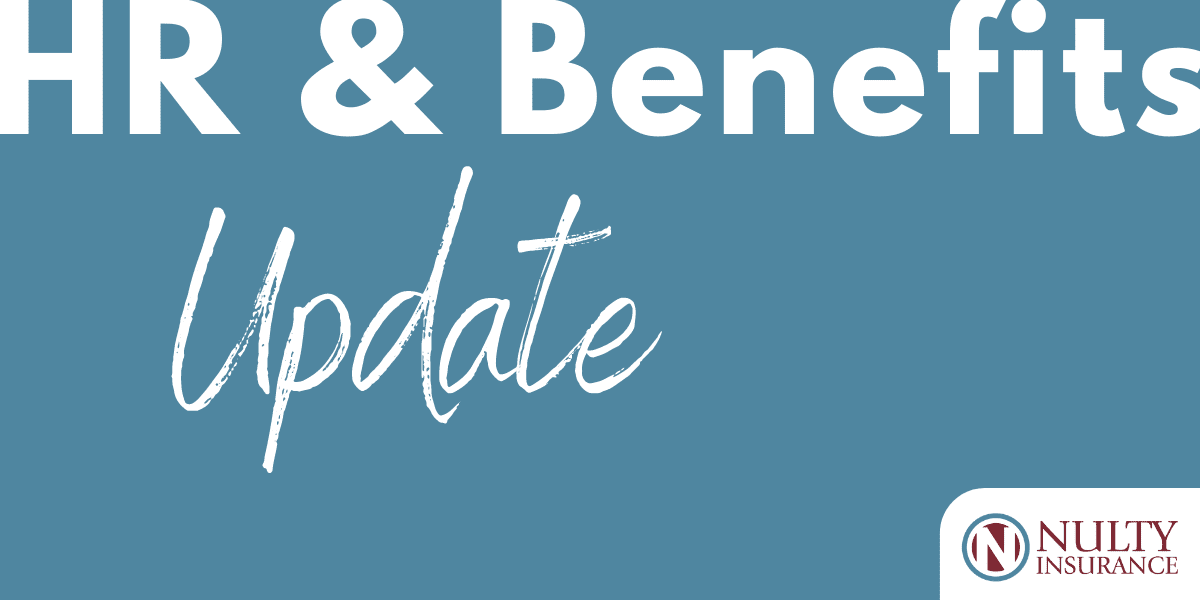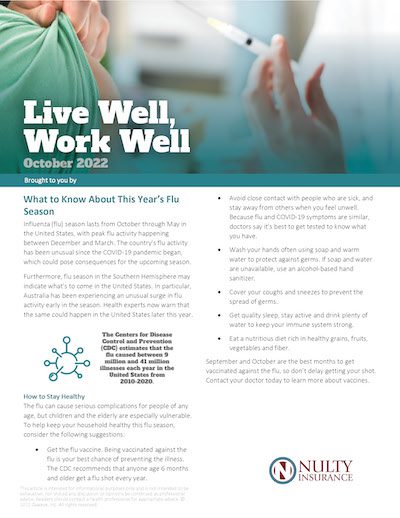
🗓️ October Updates
Keeping HR pros up to date with important compliance updates and human resource articles.
Inflation Reduction Act Contains Some Health Reforms
On August 16, 2022, President Biden signed the Inflation Reduction Act (IRA) into law. While this law is primarily aimed at fighting inflation and reducing carbon emissions, it also contains several reforms that will impact health coverage. The health reforms included in the law have staggered effective dates and will be implemented over the next several years:
- Extension of Enhanced Affordable Care Act Premium Tax Credits (2023 – 2025): The American Rescue Plan Act, which became law in March 2021, extended eligibility for ACA premium tax credits to individuals with incomes over 400% of the poverty line. ARPA also increased the amount of financial assistance, in the form of higher ACA premium tax credits, for lower-income individuals eligible for the ACA premium tax credit. This enhanced premium tax credit was set to expire at the end of 2022. A three-year extension (end of 2025) has been implemented on increased health insurance subsidies for coverage purchased through an Exchange. This may increase the number of people who get ACA premium tax credit.
- New HDHP Insulin Safe Harbor (2023): The IRA provides a new safe harbor that allows HDHPs to provide coverage for selected insulin products in any dosage form of any type before the participant meets the HDHPs deductible without adversely affecting the participant’s HSA eligibility. The new safe harbor builds on previous guidance from the IRS, which allows for the reimbursement of insulin and other glucose-lowering agents as preventative care when prescribed for individuals diagnosed with diabetes.
- Monthly Cost of Insulin is Capped (2023): Beginning in 2023, the IRA limits copays for insulin to no more than $35 for Medicare beneficiaries.
- Inflation-based Drug Rebates to Medicare (2023): Beginning January 1, 2023, the IRA requires prescription drug manufacturers to pay a rebate to Medicare if certain Medicare Part B drug prices rise faster than inflation. Beginning October 1, 2023, the same rebate will have to be paid if Medicare Part D drug prices rise faster than inflation. Group health plan sponsors should be aware that this provision of the IRA may also cause their plans’ prescription drug costs to rise. Once again, the IRA does not apply this rebate rule to employer-sponsored group health plans, leaving the door open for drug manufacturers to increase costs on employer-sponsored plans as a way to recoup earnings lost to these new Medicare rebates.
- Out-of-Pocket Rx Costs Capped for Medicare Enrollees (2025): In 2025, the IRA adds a $2,000 out-of-pocket cap on outpatient prescription drugs under Medicare Part D. However, the IRA did not extend these changes to non-Medicare beneficiaries.
- Medicare Drug Price Negotiations (2026): Under the IRA, the Department of HHS will be required to negotiate drug prices for certain drugs covered under Medicare beginning in 2026. HHS will negotiate prices directly with drug manufacturers and will focus on the most expensive drugs first.
DOL Issues Proposed Rule on Independent Contractors
The U.S. DOL has issued a proposed rule to clarify who is an independent contractor under FLSA. The DOL is proposing to rescind a 2021 rule in which two core factors – control over work and opportunity for profit or loss – carried greater weight in determining the status of independent contractors. Under the proposed rule, employers would use a totality-of-the-circumstances analysis, in which all the factors do not have a predetermined weight.
The 2021 rule, which is still in effect, made it easier for employers to classify workers as independent contractors, rather than employees. Under the FLSA, employees are entitled to minimum wage, overtime pay and other benefits. Independent contractors are not entitled to such benefits, but they generally have more flexibility to set their own schedules and work for multiple companies.
The new proposed rule directs employers to include exclusivity as a consideration under the permanency factor, but it acknowledges that simply having multiple jobs does not weigh in favor of independent contractor status. Factors in the so-called economic realities test may include:
- The amount of skill required for the work
- The degree of permanence of the working relationship
- The worker’s investment in equipment or materials required for the task
- The extent to which the service rendered is an integral part of the employer’s business
IRS Fixes Family Glitch
On October 11, 2022, the IRS and Dept. of Treasury issued final regulations revising a 2013 interpretation on premium tax credit eligibility for families. This change fixes the so-called family glitch by newly extending eligibility for marketplace subsidies to many dependents of low-wage workers who were previously ineligible. Before, eligibility for premium tax credit depended on whether the premium for single group medical coverage offered to an employee was affordable. Now, it will be based on whether the premium for group medical coverage is affordable.
The new regulation means that family members who are offered unaffordable employer group family coverage will be newly eligible for subsidized marketplace coverage. Though not all of the newly eligible are expected to do so, the final regulations ensures that eligible family members – primarily children and women – have the option of enrolling in affordable marketplace coverage.
Most of the rule goes into effect for the 2023 tax year, meaning family members who qualify can enroll in subsidized marketplace coverage for 2023. The final regulations will not affect liability under the employer mandate, a fact confirmed by the IRS. It is because the employer mandate requires certain large employers to offer coverage to employees and dependents. But penalties for violating the mandate are triggered only when an employee receives premium tax credits through the marketplace. The final regulations only extend premium tax credits to the family members of employees who are not affordable group family medical coverage. It does not affect the eligibility of employees and thus does not implicate the employer mandate.
Remember, if an employee is offered affordable single group medical coverage at work, but family coverage is not affordable based on family income, only the spouse and children would be eligible for marketplace subsidies. The determination of affordability for the employee is based on the premium for single group medical coverage.


